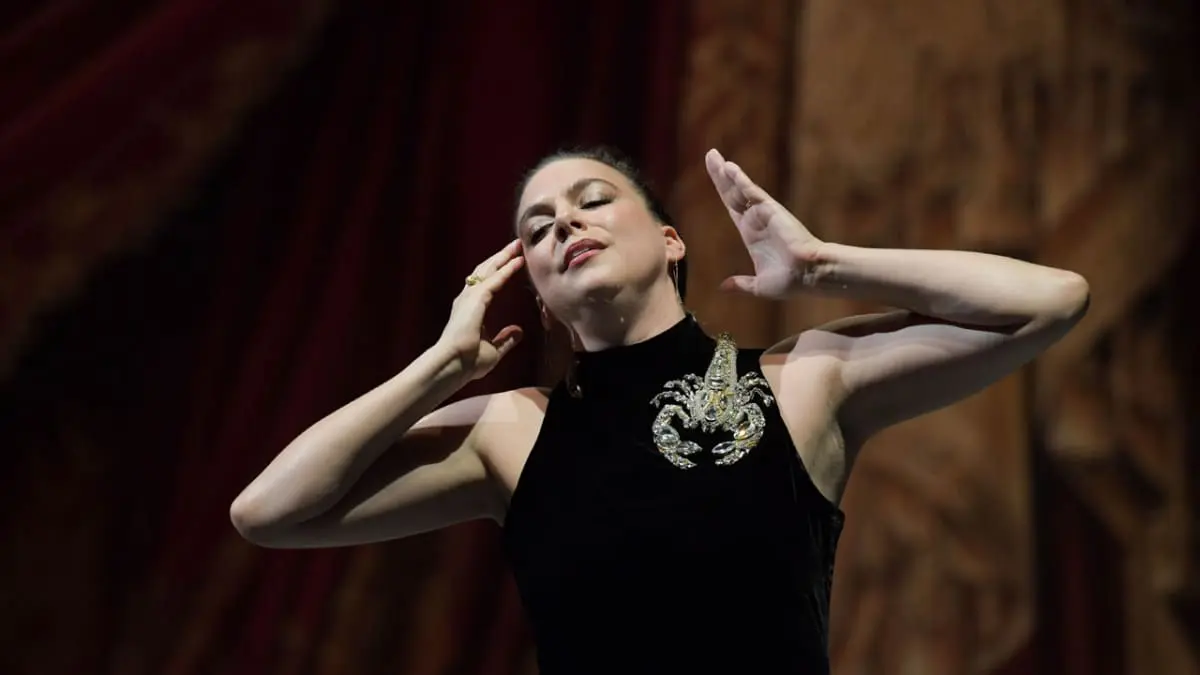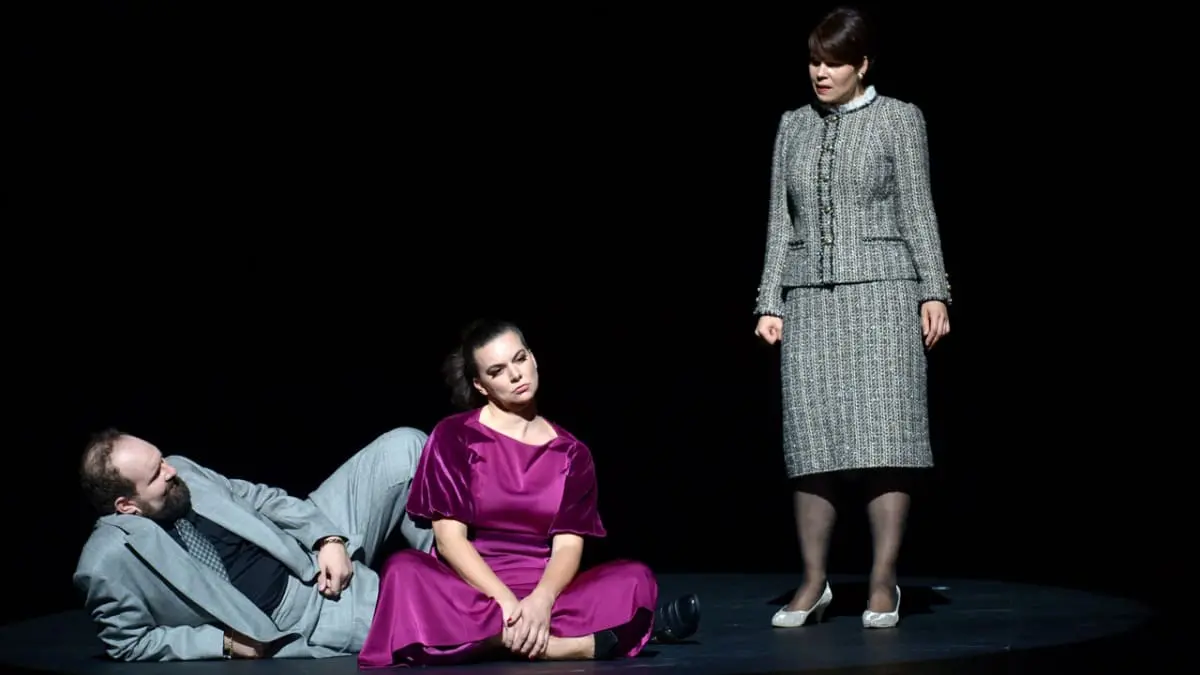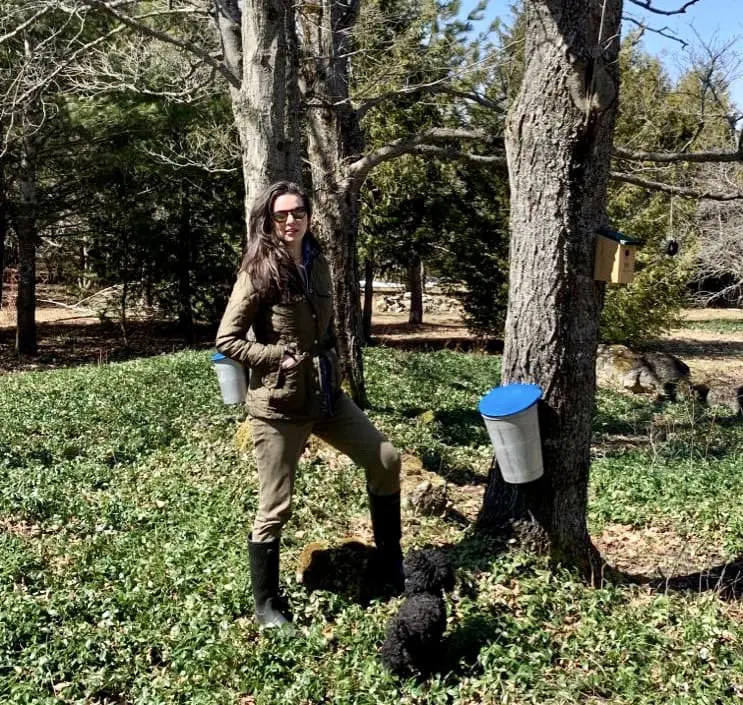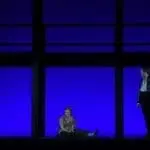In Strauss’s opera, the richest person in Vienna has booked two teams of performers: a serious group of opera professionals and a commedia dell’arte-style improv troupe, for a private performance in his residence. All goes awry when the Majordomo announces that, in order for their patrons to catch a nine o’clock fireworks show, the two groups must perform simultaneously. In this production, the audience inhabits the role of the patron, receiving a top quality performance in unprecedented comfort.
The singers, almost entirely from Oper Frankfurt’s ensemble, are costumed in standard or slightly modified formal wear. There is no set, and the orchestra is on stage. And yet, this no frills production (seen June 13th) is more enjoyable than the mildly surrealist Ariadne normally in the company’s repertoire.
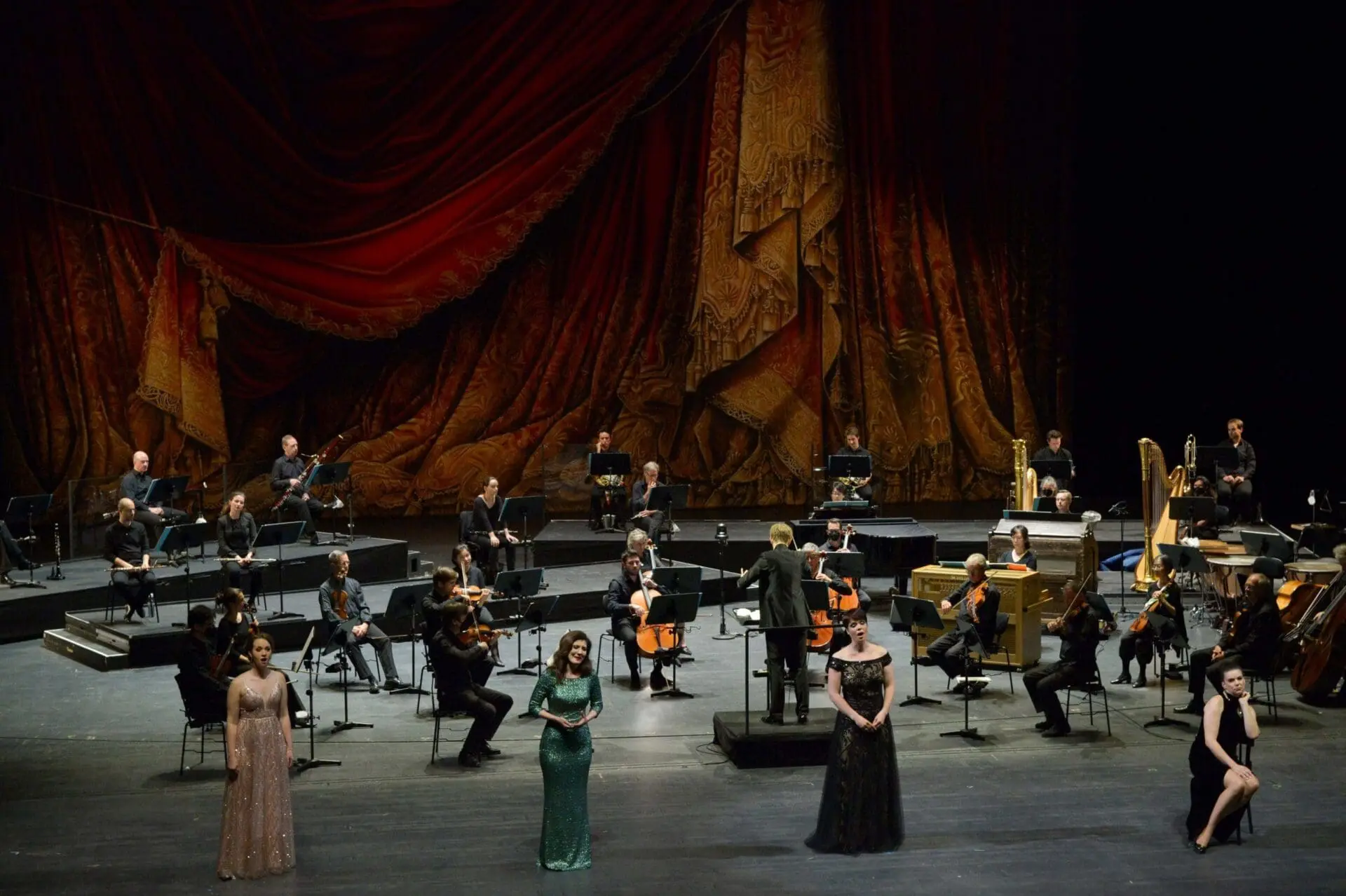
(Front, l-r) Angela Vallone (Echo), Florina Ilie (Najade), Zanda Švēde (Dryade), Ambur Braid (Ariadne); rear: conductor Thomas Guggeis and the Frankfurter Opern- und Museumsorchester. Photo: Barbara Aumüller
With no set, simplified blocking, and singers placed in acoustically advantageous positions, the current semi-staged production gives the audience a more refined musical experience. Decreasing the visual stimuli allows the audience to relax its eyes and open its ears to hear Strauss’s dense, intricate, rapidly shifting music in greater detail.
The economy of the production enhances the singing. The text in the final love scene of the opera-within-an-opera is a bit silly, an ironic commentary on opera seria, but the emotional depth of the music is no joke. In this production, the two singers, Ambur Braid in the title role, and A.J. Glueckert as Bacchus, stand on either side of centre stage, each with a music stand, as in a concert performance. Stationary behind their stands, Braid and Glueckert’s faces illuminate their inner experience as the singers project the music and text brightly, but subtly.
Both leads are in fine form. Glueckert’s instrument has a tender middle and an easy legato. Braid has an old school quality to her voice, with tremolo that creeps into its lower and middle registers, giving her a slight vulnerability that compliments the bullish determination of her acting. In her upper range, Braid can blast. On climactic notes, she sends a wall of sound into the auditorium; the orchestral din trails behind.
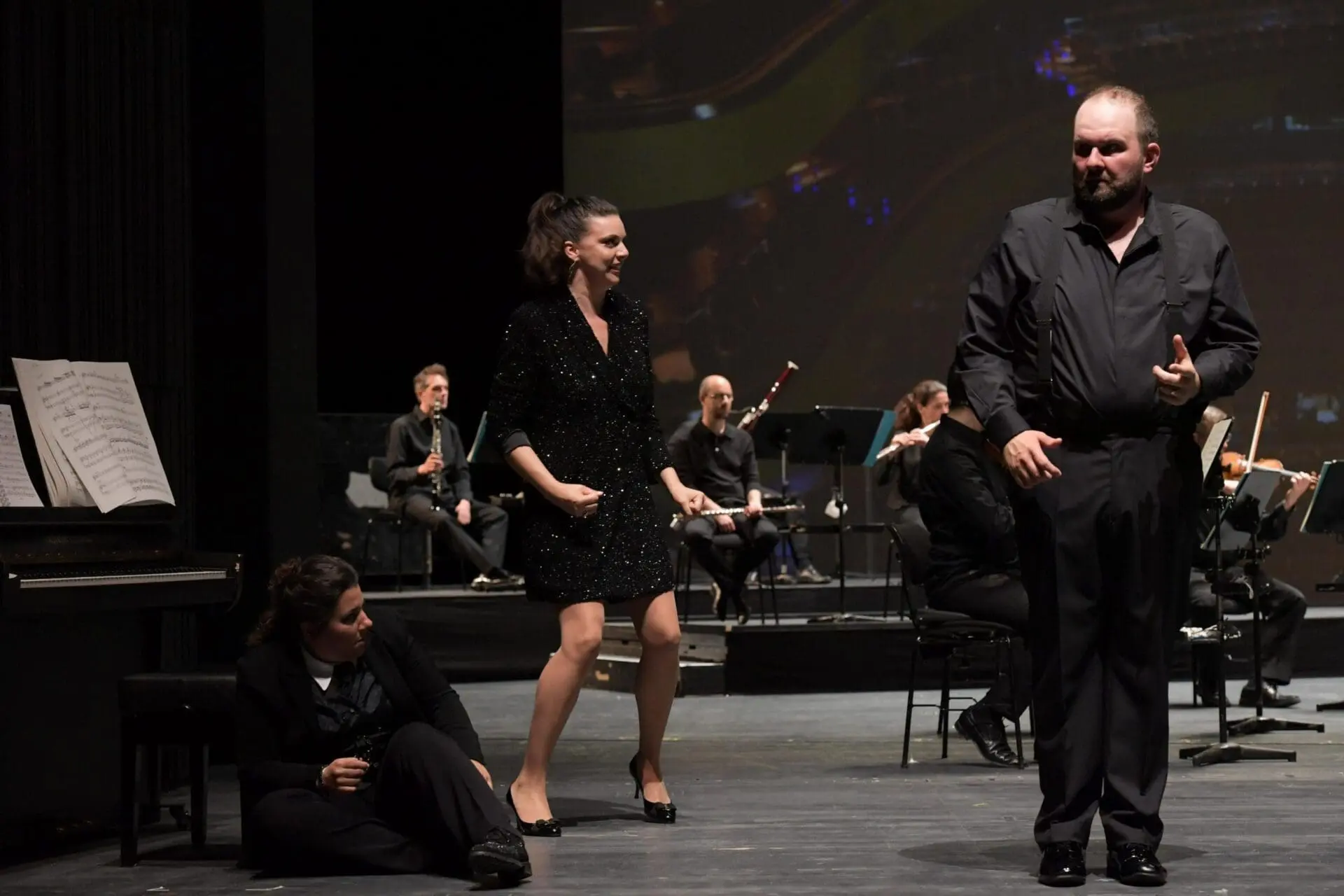
(L-R) Diana Haller (Komponist), Ambur Braid (Prima Donna/Ariadne) & AJ Glueckert (Der Tenor/Bacchus) in Oper Frankfurt’s Ariadne auf Naxos. Photo: Barbara Aumüller
Sarah Aristidou is the lone guest singer in the production. In the high-flying coloratura role of Zerbinetta, her vocal fireworks are impressive and, thanks to her technical proficiency, express more than mere virtuosity. When her Zerbinetta confides in the Composer (Claudia Mahnke) about her loneliness, Aristidou’s phrases are somehow ebullient, yet sorrowful, as though her vocal leaps and tumbles both expose and shield Zerbinetta’s broken heart.
Leading an orchestra during this pandemic is no easy task. Musicians must be swapped in and out of rehearsals and performances to accommodate official health guidelines. Nonetheless, the young prodigy Thomas Guggeis leads the Frankfurt Opern-und Museumsorchester with warmth and humility. The orchestra seems particularly sensitive to Braid’s voice, finding a soft, rippling sound that allows her to be as quiet as her sizable voice would ever want to be. At times, dynamics are a problem though. A general loudness during densely orchestrated stretches forces some voices to strain. Likewise, certain climaxes arrive too early. The Composer’s aria “Sein wir wieder gut,” which comes after a long stretch of difficult singing and loud orchestral playing, has no room to grow. It becomes a full-blast affair and leaves Claudia Mahnke (singing the role in this single performance), a seasoned Wagnerian mezzo soprano, taxed. The tender moments in the opera are more effective, including the final chords, which gently wash the hall in a shimmering, metallic glow.
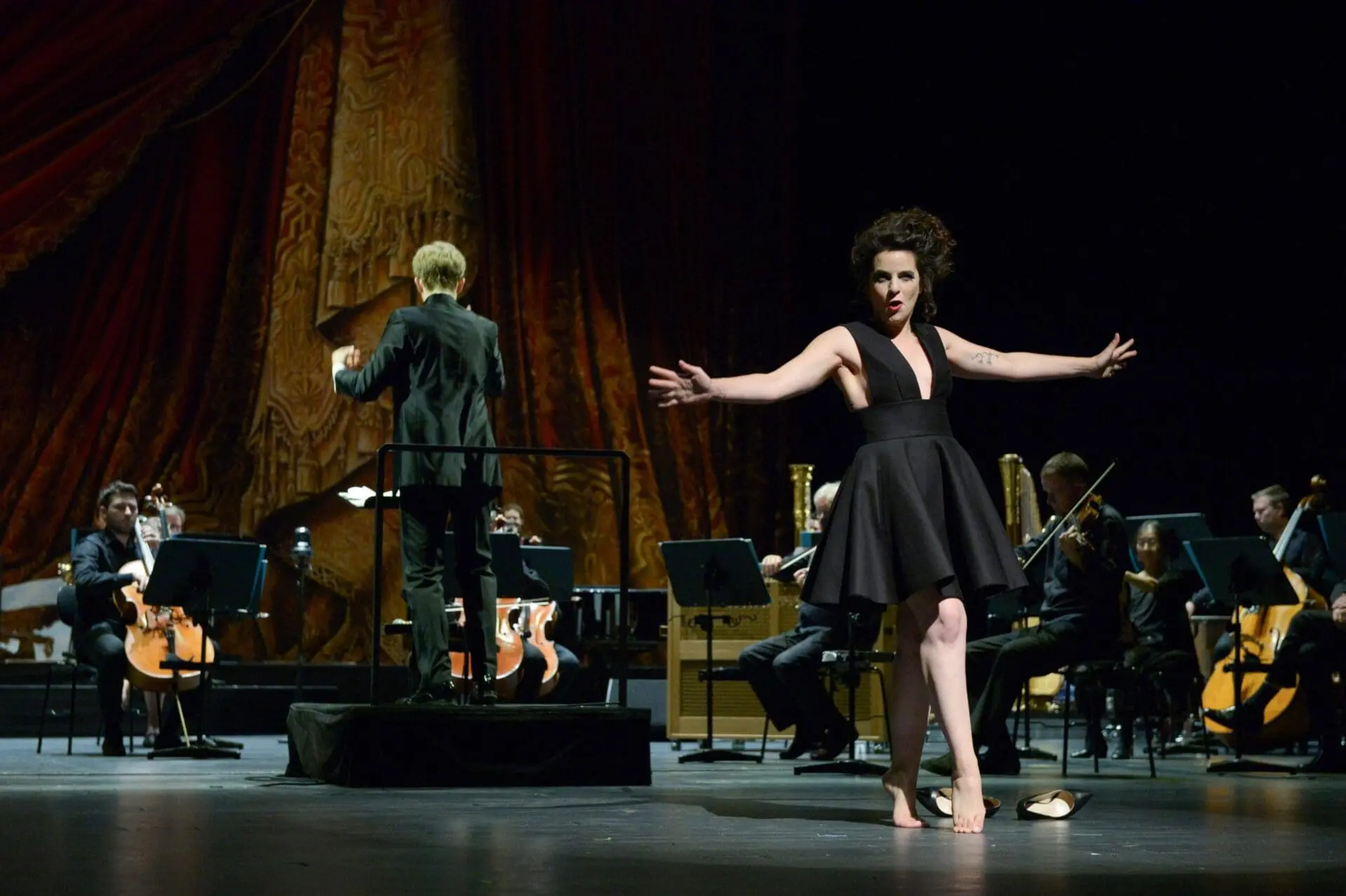
(L-R) Conductor Thomas Guggeis & Sarah Aristidou (Zerbinetta) in Oper Frankfurt’s Ariadne auf Naxos. Photo: Barbara Aumüller
The small audience beckoned the artists back for an extra curtain call, applauding their perennial professionalism. With so few chances to exercise their craft in the last year, they have remained in remarkable shape.
Such small audiences cannot sustain the opera house financially, so opera fans surely hope the hall can fill again soon. In the meantime, they can relish the strange luxury of intimate A-class opera.


